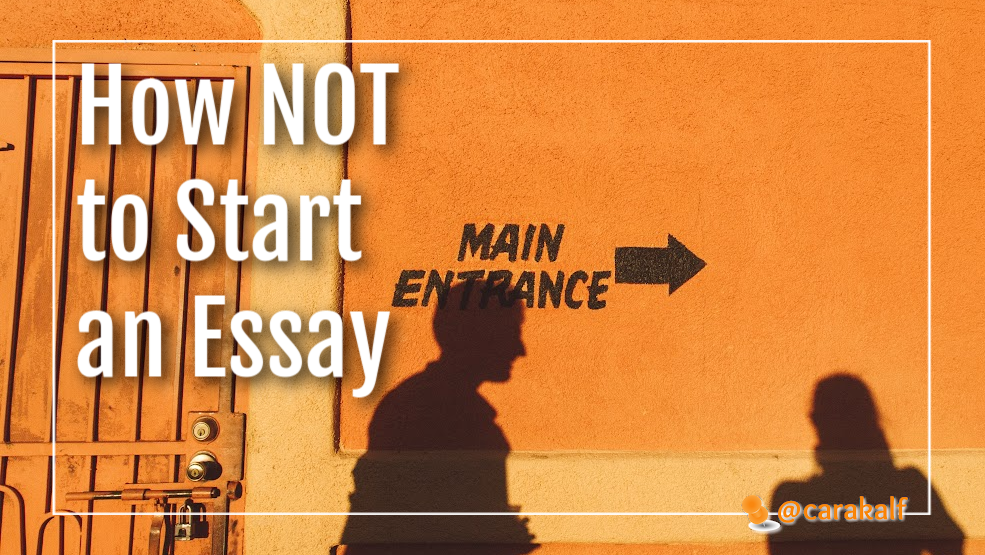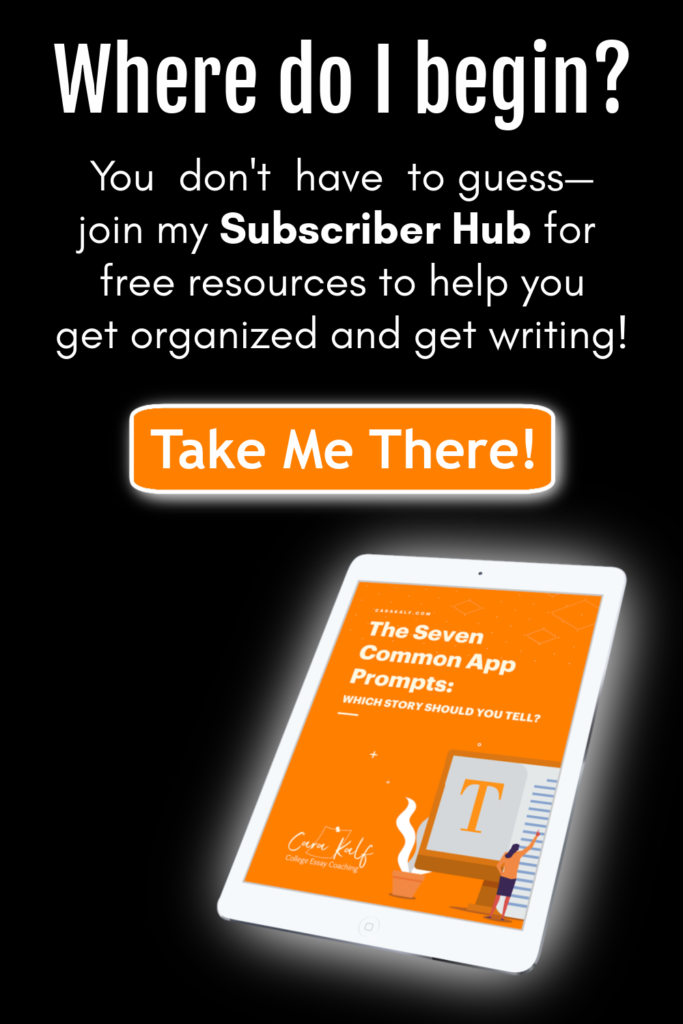The Worst Beginnings
I thought I’d start a blog post with an example of how not to begin—but I decided I’d lose your attention before I even got to the explanation. With that in mind, if you want to make sure you aren’t choosing some of the most clichéd and dull openings for your essay … read on.
Every year, students across the country begin the search for their college application essay topic. Some choose sports. Others choose academics. There are many possibilities to choose from. In the end, what they all share is the search.
YAWN. Are you bored yet? I sound like someone with 650 words to fill and nothing to fill them with. “What they all share is the search” is one of those phrases that almost sounds profound … but when you think about it longer, you realize it’s just restating the opening sentence. This is a model of one of the top two most common openings that high-school students use in writing—in all writing, not just their application essays. It’s a particularly egregious waste of space in the application essay, though, when you have only 650 words to work with. Here’s another like it:
Throughout history, students have been searching for the right leads for their papers. Whether it was a report, a thesis paper, a literary criticism or a personal essay, assignments for English class have left students victims to one of the most pernicious types of bad leads: the Sweeping Statement.
Do you see what these leads have in common? They are speaking far too broadly, to the point that their generalizations are meaningless. They are searching for a universal truth to impress the reader with their wisdom. You are not responsible for a brief history of time. Your piece doesn’t need to start with a wide-angle and gradually find your focus in the crowd. Your mission is to start—not clear your throat—but START, with something that captures your reader from the first moment.
Do you know what the most overused lead is? I blame your fifth-grade teacher—that’s right, it’s The Question.
“Hook your reader right at the beginning!” your teacher wisely told you. But then she went off-track. “Connect with the reader and make him wonder by asking a question.”
“Have you ever wondered why cats purr?” (Why no, I haven’t.)
“Did you know that the pyramids were built of stone blocks each as big as a Mac truck?!” (That’s nice.)
As you can see, your assumption of what the reader finds interesting is off-putting. It’s a little bit patronizing, especially because it’s such a common hook aimed at children. But honestly, the main issue with The Question as an opener is its gross ubiquity … especially in writing aimed at children. So let this one go the way of other middle-school trends that disappear too fast for me to trendily try to list them here. (Is vanilla-scented perfume still a thing? If so … why?)
Neither the sweeping statement nor the rhetorical question serve to actually grab your reader’s attention. The way you do that is by identifying the moments of energy in the story. What moment would make people gasp? Or laugh out loud? Or cry? If you waste those moments—if you fail to put them at the top—the reader might stop reading before getting to them.
Take a moment to read this sample essay over at ThoughtCo. I’ll wait.
Now, tell me this: Why would you start that essay anywhere other than “One night when I was 6, someone threw a rock through our front window”? (Seriously? They threw a ROCK in your WINDOW, and you’re mentioning it NOW?) In the news business, this is known as “burying your lead.”
The writer specifically says it was ‘not a turning point’—but he’s wrong. It was one of the only specific memories he included in a short essay. If he had been working with a coach, I believe he would have eventually concluded that … OK, it probably was a pretty big-deal moment. Yes, his dads handled it very calmly, and that was key to his ongoing feeling of safety—but it was, in fact, a turning point. It was the moment he learned that there were people in the world who would wish to actually physically hurt him and his family because his dads were gay. That’s a pretty heavy realization at any age, let alone age 6.
Working with a coach you trust can help you face the introspection you need when you’re writing this type of piece. The coach can also help you learn to identify those moments in your story that will make a reader want to read your essay. Your reader is bored and jaded, reading mediocre essays all day long. If you can genuinely capture that reader’s interest—give them an essay they want to read—that’s the best first impression you can make.
(Photo by Holly Mandarich on Unsplash)


